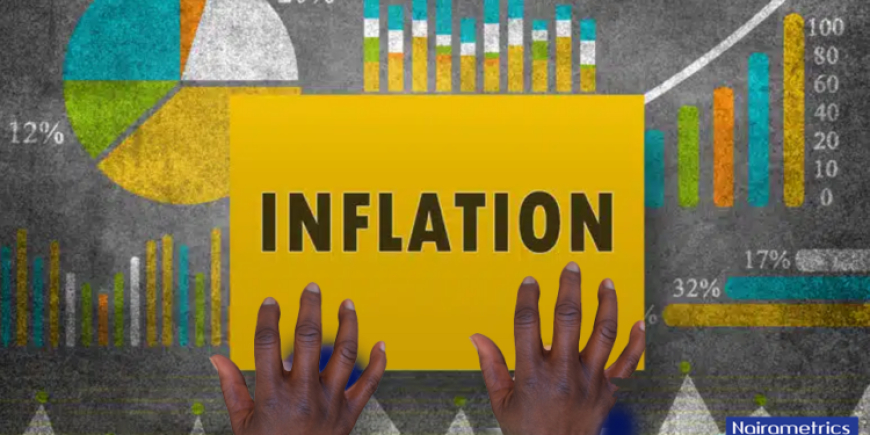Analysts project inflation to drop below 17% in October

Ahead of the release of the October inflation data by the National Bureau of Statistics, analysts have agreed that a moderation appears to be the only way forward.
This was contained in multiple macroeconomic updates from investment houses on the inflation numbers.
The September 2025 inflation figure printed at 18.02 per cent, marking the sixth month of consecutive decline.
The analysts at Cowry Assets Management projected that headline inflation would further ease to 17.83 per cent, “supported by continued naira stability, improved FX liquidity, and sustained food supply from the ongoing harvest season. Although the upward adjustment in PMS prices in early October introduced mild cost pressures, the overall impact on headline inflation should remain limited due to petrol’s relatively low weighting in the CPI basket.
“This projection builds on Nigeria’s encouraging inflation path. In September 2025, headline inflation moderated to 18.02 per cent, down from 20.12 per cent in August, marking the sixth consecutive month of disinflation and beating Cowry Research’s forecast of 19.73 per cent. Month-on-month inflation slowed to 0.72 per cent, from 0.74 per cent in August, signalling softer price increases across key CPI divisions. On a year-on-year basis, headline inflation was 14.68 percentage points lower than the 32.70 per cent recorded in September 2024, the softest annual print since May 2022 (17.71 per cent).”
Cowry Research added that with the sustained decline in headline inflation and the rate cut by the Monetary Policy Committee of the Central Bank of Nigeria in September, an additional cut may be likely when the MPC meets later this month.
United Capital, in its Inflation Watch, projected that Nigeria’s headline inflation rate will fall to 16.30 per cent in October 2025. The moderation was hinged on falling food prices and a stronger naira, although it noted that an increase in energy prices will exert some upward pressure on consumer prices.
In the past week, the Q3 Access Quarterly 2025, published by the Access Bank Plc Economic Intelligence Unit, projected that inflation would decline to 16.84 per cent in October, supported by sustained exchange rate stability and improved food supplies from the ongoing harvest season.
Earlier in October, the Independent Media and Policy Initiative projected that headline inflation will drop further to 14 per cent by year-end, a shift from the 17 per cent it had forecasted earlier.
The think tank, in a policy statement signed by its Chairman, Dr Omoniyi Akinsiju, noted that the drop in inflation in the last six months would have had some impact on the current poverty data.
IMPI said, “In many particular ways, inflation plays a significant role in the World Bank’s template of increased estimates of poverty in a jurisdiction. In a period of persistent increase in prices, the correlation is that more people within that jurisdiction are expected to slide or fall into poverty because of the erosion of purchasing power and the inability of an increasing percentage of the people to afford basic economic sustenance items, especially food and energy.
In the past week, the Q3 Access Quarterly 2025, published by the Access Bank Plc Economic Intelligence Unit, projected that inflation would decline to 16.84 per cent in October, supported by sustained exchange rate stability and improved food supplies from the ongoing harvest season.
Earlier in October, the Independent Media and Policy Initiative projected that headline inflation will drop further to 14 per cent by year-end, a shift from the 17 per cent it had forecasted earlier.
The think tank, in a policy statement signed by its Chairman, Dr Omoniyi Akinsiju, noted that the drop in inflation in the last six months would have had some impact on the current poverty data.
IMPI said, “In many particular ways, inflation plays a significant role in the World Bank’s template of increased estimates of poverty in a jurisdiction. In a period of persistent increase in prices, the correlation is that more people within that jurisdiction are expected to slide or fall into poverty because of the erosion of purchasing power and the inability of an increasing percentage of the people to afford basic economic sustenance items, especially food and energy.
“Thus, the high inflation environment that prevailed in Nigeria, peaking at 34.8 per cent in December 2024, was a major input to the estimated 139 million Nigerians falling into poverty by the World Bank. Things have, however, changed over the last six months. From the high inflationary environment, the economy has transmuted to a vastly improved one. Now, we can safely assert that more Nigerians have been cycled out of poverty, which is consequent to the ongoing disinflation in the economic space. With a new set of data available to us, we can further improve on our Consumer Price Index projection to submit that the inflation rate will decline to 14 per cent by December 2025. This is a shift from the 17 per cent we projected in our last policy statement. We continue to observe a strong determination by the federal administration to ensure a low-cost economic environment, even as it grapples with labour disputes on multiple fronts.”
The think tank also expects the Central Bank to reduce the benchmark interest rate by at least 150 basis points during its next monetary policy meeting.
Analysts Project Nigeria Inflation to Drop Below 17% in Octo









